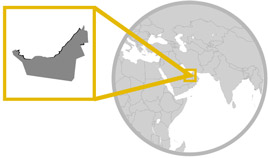All Saudi Arabian citizens have full access to public education from a primary level through college. Public expenditure on education as a percentage of government expenditure is around 27.6% and the sector is managed by the Ministry of Education in Saudi Arabia. The country’s education system has been noted strongly for its religious content and at university level, almost two thirds of graduates earn degrees in Islamic subjects.
Although not considered part of the official education ladder and not required for enrolment in the first grade of primary education, over 100,000 children are in Pre-Primary education aged 3 and up. At this stage of their education, gender parity is at around 51% male and 49% female.
At age 6, children enter Primary education at the first grade and at the end of their primary years, will obtain the Elementary Education Certificate and move on to Intermediate education. Around 2.5 million students are in education at this level and the gender parity is similar to Pre-Primary with around 51% male and 49% female.
At age 13, students enter Intermediate education. This stage will last for approximately three years and is considered the final stage of general education. At the end of this stage, students may move on to both general and specialized secondary education including a range of technical and vocational training programs lasting for a further three years in various fields in agriculture, commerce and industry. Gender parity shifts a little at this stage with the student population being around 53% male and 49% female.
Secondary education meanwhile allows students to specialize in a particular field in order to build a career, build a social network with professionals in that field and develop related skills in order to add value to their chosen path or industry. Gender parity is similar to Intermediate education and sees the student population split at 53% male and 47% female.
Students wishing to engage and understand their subject matter further may opt to enter Higher education. Courses last for approximately four years in humanities and social sciences but can last as long as six years in medicine, engineering and pharmacy. Today there are around 24 government universities in Saudi Arabia and a range of private ones which offer diplomas, Bachelor’s, Master’s and PhD degrees as well as distance learning. Higher education gender parity is unique among the Saudi Arabian educative systems in that gender parity reverses from previous levels, with students being around 42% male and 58% female.

